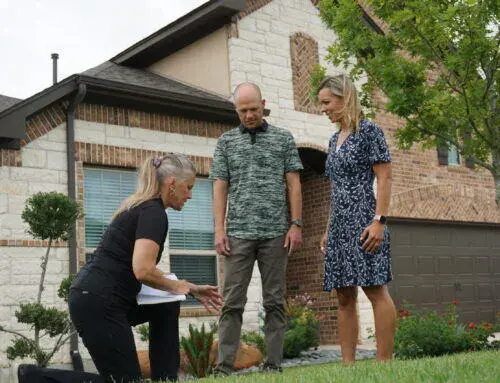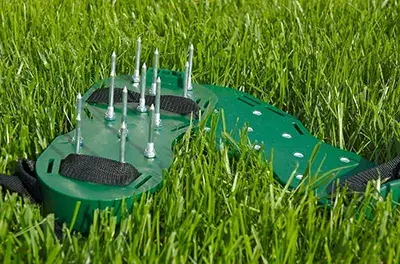Armyworms are highly destructive insects that can significantly damage your lawn in days. Not to worry, we’ve gathered some info to help you understand all there is to know about armyworms and the impact they have on your turf.
Life Cycle
Armyworms have four stages of life: egg, larvae, pupae, and adult. There are several types of armyworms including the fall armyworm, the yellow-striped armyworm, the beet armyworm, and the true armyworm. However, here in Texas we most commonly encounter the fall armyworm which is what we will discuss in this blog.
It takes roughly 2 to 3 weeks for the armyworm to mature from egg to full-grown larvae. At this stage, the larvae will burrow in the soil to pupate and emerge as an adult moth in 10 to 14 days. Armyworm moths fly and mate during the night.
Characteristics 
Armyworm eggs appear in clusters of up to 1,000 eggs, covered in fuzzy scales from the female. Eggs are laid under leaves or on structures near turf. The eggs are green, brown, or black in color and take 3 to 7 days to hatch.
Egg photo was taken by an Emerald Lawns tech 
Larvae are cream, green, brown, or black in color, depending on the life stage and feeding. You can identify armyworms by the “Y” shape on the head between the eyes. They also have four dark spots in a rectangular shape at the end of the abdomen.
Lawn Damage
Armyworms work together just as the name states: as a giant army set to damage your lawn! Because they strip foliage, your first notice of fall armyworm damage appears on the ends of the grass blades. The tips of the grass will appear transparent due to the consumed plant cells. Eventually, if untreated, your grass will be left brown in color.

What types of lawns are armyworms commonly found on? These caterpillars typically feed on bermudagrass, fescue, ryegrass, and bluegrass. Although, when food is scarce, they will consume other grass types. For healthy Bermuda lawns, recovery will occur after defoliation due to the aggressive growth of the rhizomes and stolon. Lawns with newly established grass will likely experience severe damage or death from armyworm feeding.
During the 4th and 5th larval stages, the armyworm larvae devour 93% of their total life-span consumption. This is by far the most destructive stage, with earlier stages creating less noticeable damage. These insects typically feed and are most active during the early morning and late evening but continue to eat throughout the day. How long does this feeding occur? It’s estimated that an entire football field can be devoured in just 2 to 3 days!
Armyworm damage initially appears similarly to drought stress because of the discoloration. However, as feeding progresses, your lawn will experience a complete loss of foliage. There may be distinct areas of undamaged grass that create harsh contrast with damaged turf.

Prevent Damage
While weather and natural enemies of armyworms exist to keep the risk of damage low, these are not reliable sources of control to prevent the downfall of your lawn. Your best chance to prevent armyworm damage is to be on the lookout for signs of these pests. Here are some great ways to detect the presence of armyworms on your turf:
- Lawn discoloration
- An increased presence of birds in your yard might indicate that there are armyworms; this is because birds will eat the caterpillars
- Stripped turf because of feeding
- Armyworms on the sidewalk may indicate that there are many in your grass
- Ragged or chewed grass blades
- Bare lawn spots
If you see any of these signs, contact us immediately for help! Quick detection and treatment of an armyworm activity will save your lawn. We are applying our annual grub application in response to armyworm invasions.




